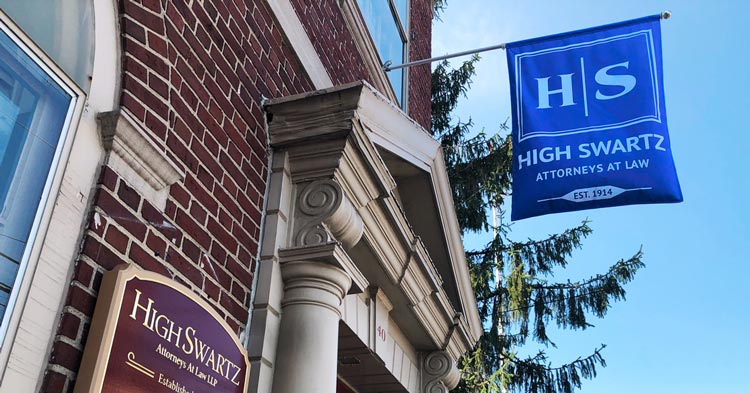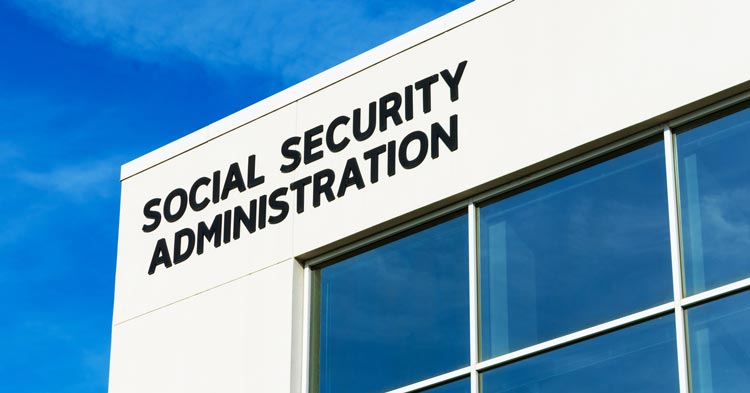Updated on 1/28/2021
COVID-19 Vaccine Registration Links for Southeastern PA and NJ Residents
We are continuing to follow state guidelines as we navigate the safe opening of our offices to the public.
For those clients who require in person meetings, accommodations will be made.
As we have since early March, our firm will continue to service our clients with our same standard of excellence and we look forward to our full reopening at the earliest possible date.
Wishing you all good health,
High Swartz Attorneys and Staff
High Swartz is continuing to serve its clients and the community remotely and by video conferencing. If you are in need of legal services or assistance, please reach out to us at 610.275.0700 or contact us through our online form.
Information for Small Businesses and Employers from High Swartz Attorneys
Business Owners in PA – Your Reopening Questions Answered by James B. Shrimp and Thomas D. Rees
Business Interruption Insurance in PA – Are You Really Covered During the Pandemic? by Joel D. Rosen
A Small Business Game Plan to Follow During the Coronavirus Outbreak by Don Petrille
Does Workers’ Comp Cover Coronavirus? by Thomas E. Panzer
How the Families First Coronavirus Response Act Will Affect Local Business by James B. Shrimp
Employers: Does a Force Majeure Clause in Your Contract Cover You During the Coronavirus Pandemic? by Thomas D. Rees
Can I Collect Unemployment Compensation During the Coronavirus Pandemic? by James B. Shrimp
Important Sites for Small Businesses During the Pandemic
The mission of The Smalll Business Administration (SBA), while consulting with the Department of the Treasury is to provide up-to-date guidance to address borrower and lender questions involving the implementation of the Paycheck Protection Program (PPP) which was established by section 1102 of the Coronavirus Aid, Relief, and Economic Security Act (CARES Act).
“Borrowers and lenders may rely on the guidance provided in this document as SBA’s interpretation of the CARES Act and of the Paycheck Protection Program Interim Final Rules (“PPP Interim Final Rules”) Currently, the government will not challenge lender PPP actions that conform to this guidance, and the PPP Interim Final Rules and any subsequent rulemaking in effect at the time.”
High Swartz intends to update this information as it becomes available to us.
Coronavirus Tax Relief and Economic Impact Payments: Tax help for taxpayers, businesses, tax-exempt organizations and others – including health plans – affected by coronavirus (COVID-19)
Commonwealth Financing Authority
Pennsylvania Industrial Development Authority
Family Law Insights
Which Parent Gets the $500 Child Stimulus Payment and How Does It Impact Support? by Elizabeth C. Early
PA Support Modifications in the Time of COVID-19 by Chelsey A. Christiansen
Commercial, industrial, or residential property owners in Pennsylvania
Delco: You Could Save Money by Appealing Your Property Assessment
PA Commercial Property Owners: Should You Consider Appealing Your Property Tax Assessments During the Coronavirus Pandemic? by William F. Kerr, Jr.
Estate Planning During the Pandemic
College-Bound Kids? Why a Power of Attorney is More Important Than Ever
Is it worth getting Short-Term Limited Duration Health Insurance during the Pandemic? by Mary Cushing Doherty
Do I Need to Pay Philadelphia City Wage Tax During the Pandemic? by Kathleen M. Thomas
Update on 3/20/20 at 3:30pm EST
Dear clients, business partners and friends,
On Thursday, March 19, Governor Wolf ceased operations of all non life-sustaining businesses in the Commonwealth.
Although High Swartz physical offices are temporarily closed, our attorneys and staff are working remotely and available to assist you.
Attorneys are also able to receive any deliveries from you. Because of physical office closures, FedEx and UPS shipments need to be delivered to a temporary address specific to your attorney.
If you have a delivery already in transit, please forward your tracking number to your attorney, and we can then reroute it.
Your delivery is important to us, and we ask that you please contact your attorney directly for their temporary address.
________________
Update on 3/18/20 at 5:00pm EST
High Swartz continues to closely monitor the COVID-19 situation. Below is an update of the firm's plans and preparedness.
On the advice of Governor Wolf, we have decided to operate both our Norristown and Doylestown offices remotely, effective Wednesday, March 18, 2020.
All attorneys and staff will continue to work and are available to address your legal needs. Our switchboard remains open during normal business hours, 8:30 am to 5:30 pm, to answer your calls and be sure they are routed to the requested party. Email addresses for our attorneys are available here.
Information regarding the re-opening of our physical offices will be relayed as soon as possible.
In the meantime, you may continue to reach your attorney and other employees of High Swartz in the ordinary course.
If you need general assistance, please contact our offices at the phone numbers below or contact info@highswartz.com
The firm wishes you continued good health and safety during these difficult times.
Norristown Office
610.275.0700
40 East Airy Street
Norristown, PA 19401
Doylestown Office
215.345.8888
116 East Court Street
Doylestown PA, 18901







